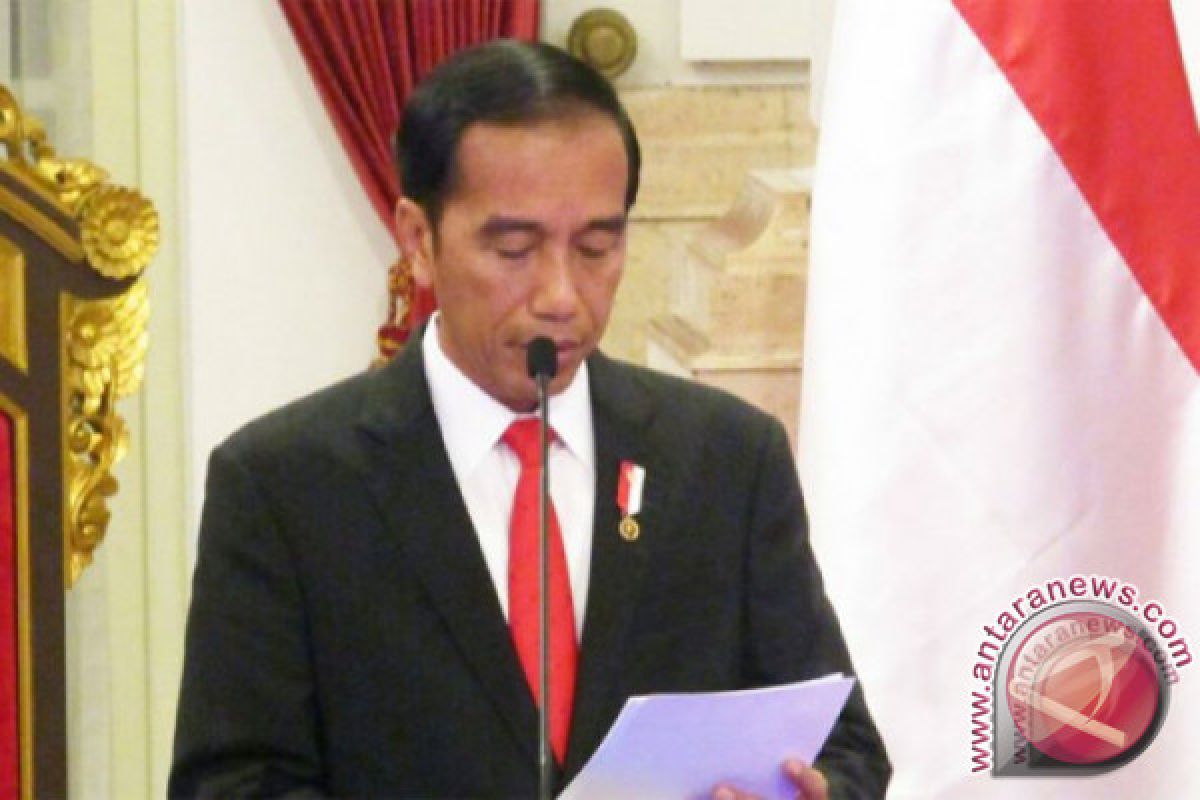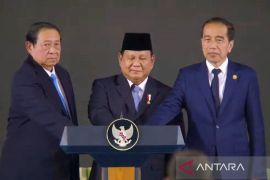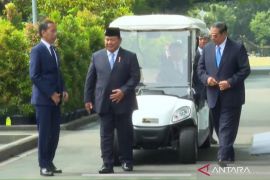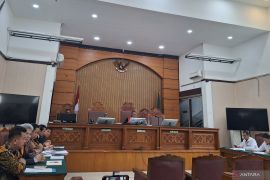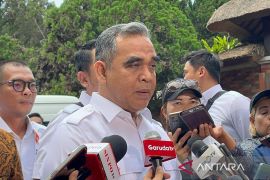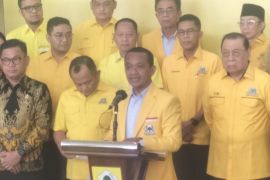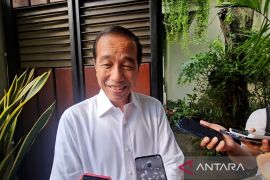Jakarta (Antaranews Babel) - President Joko Widodo (Jokowi) received Chairman of the Directors of the Pancasila Ideology Development Board (BPIP) Megawati Soekarnoputri along with other members at the Merdeka Palace on Thursday.
The president, accompanied by Coordinating Minister for Political, Legal, and Security Affairs Wiranto, State Secretary Minister Pratikno, Justice and Human Rights Minister Yasonna Laoly, and Cabinet Secretary Pramono Anung, received Soekarnoputri and the BPIP Steering Committee in the oval room of the Merdeka Palace at 11 a.m. local time.
Members of the Steering Committee of BPIP comprised Try Sutrisno, Ahmad Syafii Ma'arif, Said Aqil Siradj, and Ma'ruf Amin.
Head of BPIP Yudi Latif attended the meeting with committee members.
On the occasion, Soekarnoputri lauded President Jokowi for receiving the committee.
"Lately, several parties had shown keen intent to hold the meeting with BPIP. Although, we are old, but our spirits are still young," Megawati noted.
The minister also revealed that the parties to have held meetings and lectures with the BPIP included commander of the Indonesian Military, chief of Police, and head of the State Intelligence Agency.
"The People's Consultative Assembly (MPR) is one of the agencies with which we want to hold the meeting. Maybe next time," she pointed out.
BPIP was formerly the Presidential Working Unit for the reinforcement of the Pancasila Ideology (UKP PIP) that has provided guidance on it.
The UKP PIP has perfected and revitalized the organization, duties, and functions after Jokowi signed Presidential Regulation No. 7 of 2018 on the Pancasila Ideology Development Agency on February 28, 2018.
According to the presidential regulation, the BPIP is tasked with fully assisting the president and continuously formulating policy directives, coordinating, synchronizing, and managing the development of the Pancasila ideology.
Besides this, the BPIP also conducts the standardization of education and training and provides recommendations based on the results of studies on policies or regulations that conflict with Pancasila to state institutions, ministries and institutions, local government, socio-political organizations, and other community elements.


